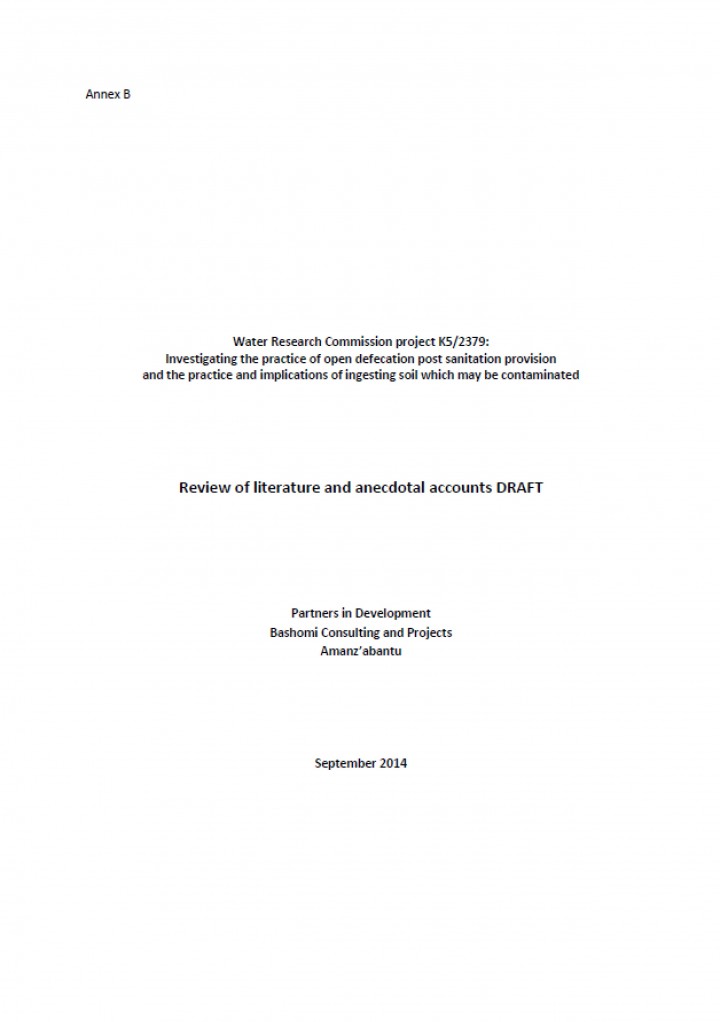Investigating the practice of open defecation post sanitation provision and the practice and implications of ingesting soil which may be contaminated Review of literature and anecdotal accounts (draft) WRC (2014)
Bibliographic information
WRC (2014). Investigating the practice of open defecation post sanitation provision and the practice and implications of ingesting soil which may be contaminated Review of literature and anecdotal accounts (draft) Partners in Development, Bashomi Consulting and Projects, Amanz’abantu for Water Research Commission project K5/2379, Pretoria, South Africa
Filter / Tags
RuralEnglish
Downloads
Investigating the practice of open defecation post sanitation provision and the practice and implications of ingesting soil which may be contaminated
Type: application/pdf
Size: 1.26 MB

